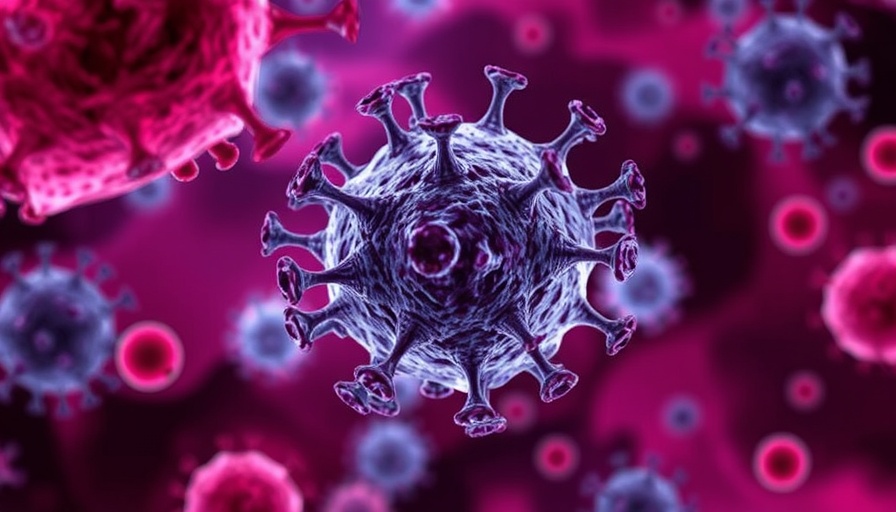
Understanding the Hidden Links: Immune Changes and Schizophrenia
Schizophrenia, affecting about 1 in 300 individuals worldwide, remains one of the leading causes of disability. The condition drastically shortens life expectancy by 15 to 25 years compared to the general populace. Symptoms such as delusions, hallucinations, and emotional dysfunction showcase its complexity, indicating a pressing need for more individualized treatment strategies.
Why Conventional Treatments Sometimes Fail
While antipsychotic medications have proven beneficial for many, approximately one-third of those with schizophrenia do not respond favorably to traditional anti-dopamine treatments. Moreover, antipsychotics often do little for symptoms essential to long-term recovery, like social withdrawal and cognitive impairment. With this in mind, understanding the disease's multifaceted mechanisms becomes critical for pinpointing new therapeutic avenues.
Inflammation’s Role: A New Perspective
Emerging research highlights a connection between low-grade inflammation and schizophrenia development. Notably, certain inflammatory markers in the blood, including cytokines like interleukin-6 (IL-6), are frequently elevated in patients. However, attempts to harness anti-inflammatory drugs as treatments for schizophrenia have, unfortunately, yielded disappointing results, indicating a complex relationship between inflammation and mental health.
Groundbreaking Research on Immune Cells
A pivotal study published by Dudeck and colleagues in JAMA Psychiatry involved a systematic review and meta-analysis spanning over 40,000 participants. This research meticulously compared immune cells in the blood—specifically types like neutrophils, monocytes, and lymphocytes—between those diagnosed with schizophrenia and healthy controls. Such investigations are vital, as immune cells not only defend against disease but also interact closely with psychological health.
The Promise of Personalized Treatments
The insights gained from investigating immune response in schizophrenia sufferers could illuminate new pathways for treatment. As we uncover how different immune cell types react within individuals, tailored interventions may be devised that extend beyond the current one-size-fits-all approach. Such efforts may promise not just symptom alleviation but real improvements in life quality for affected individuals.
Addressing Misconceptions About Schizophrenia
It's essential to dispel common myths surrounding schizophrenia. Often mischaracterized as a single disorder with uniform symptoms, its clinical manifestations vary widely. This misunderstanding can exacerbate stigma and hinder effective treatment by neglecting the role of unique biological and environmental factors that influence each patient's experience.
Looking Ahead: Future Directions in Schizophrenia Research
As research continues to delve into the intricacies of mental illness and immune function, the potential for revolutionizing schizophrenia treatment appears promising. Future studies focusing on the intersection of modern immunology and psychiatry hold the keys to unlocking transformative therapy pathways.
For residents of the Grand Strand who prioritize healthy lifestyles, understanding these health issues provides a foundation for supporting those affected by mental illness. Encouraging community engagement and awareness can lead to better resources and support systems tailored to those struggling with conditions like schizophrenia. Together, we can help foster an environment of understanding and healing.
 Add Row
Add Row  Add
Add 





Write A Comment